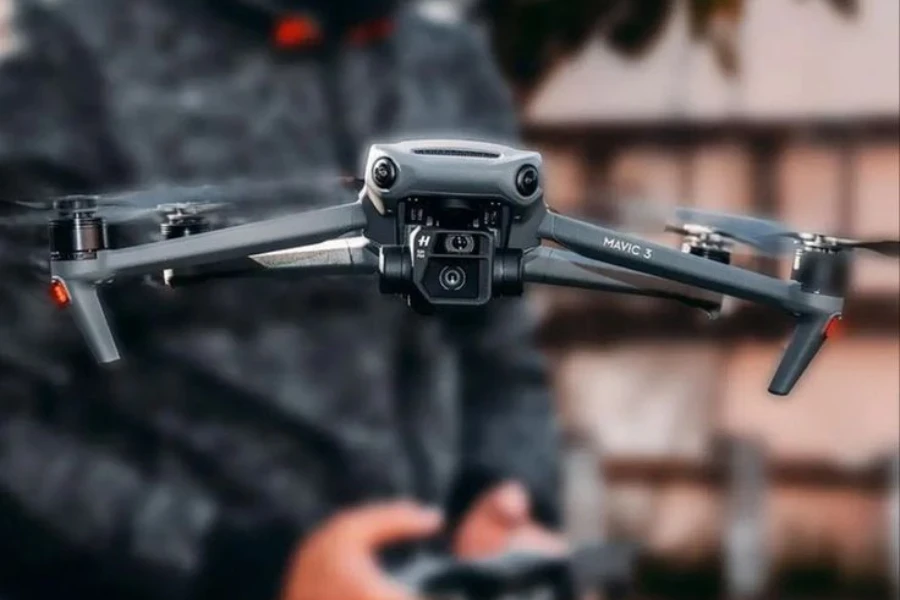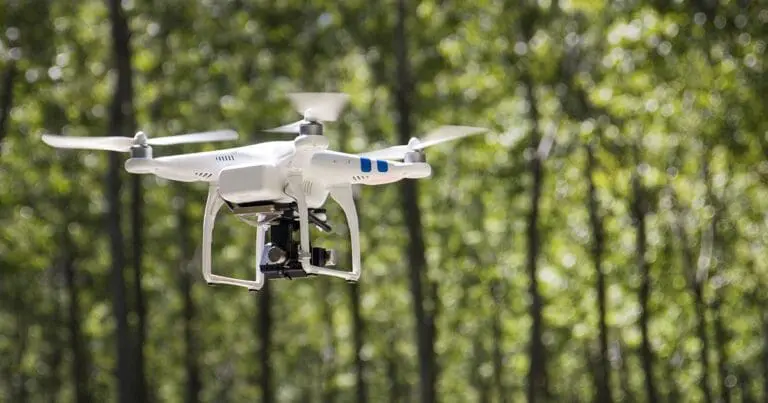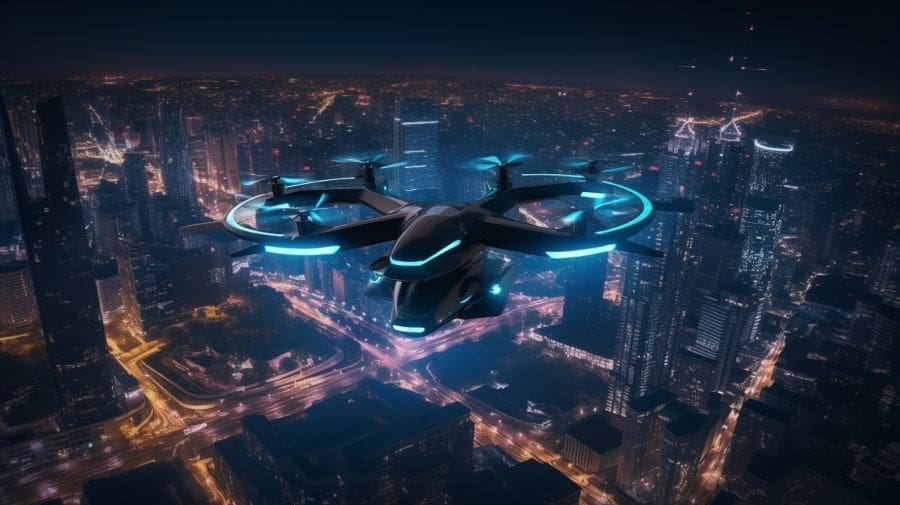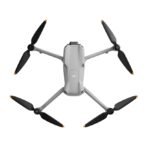Introduction
Overview of Alibaba
Alibaba Group, founded by Jack Ma in 1999, has evolved into a colossal player in the global e-commerce landscape. Initially conceived as a platform for small businesses to connect with international buyers, Alibaba has expanded to encompass various sectors, including cloud computing, digital entertainment, and, notably, logistics. By 2023, Alibaba has transformed into a tech giant that boasts billions in revenue and a substantial market share in diverse areas like online retail, payment solutions, and logistics services. The strategic rise of Alibaba can be attributed to several factors:
- E-commerce Ecosystem: With a suite of platforms such as Taobao, Tmall, and AliExpress, Alibaba caters to both businesses and consumers, enabling seamless transactions.
- Advanced Technology: The company’s commitment to embracing cutting-edge technology has allowed it to stay at the forefront of e-commerce innovations.
- Global Reach: Leveraging its extensive supply chain network, Alibaba has been able to tap into international markets, expanding its footprint beyond China.
For you, if you’re an independent entrepreneur or a large corporation, Alibaba likely offers a marketplace that resonates with your needs. It’s not just about sales; it’s about a vision of connecting with an expansive audience.
Importance of Drone Technology
Now, let’s delve into one of the most fascinating aspects of Alibaba’s innovations—the use of drone technology. In an era where speed and efficiency are paramount, drone delivery has become increasingly important. You may have heard of companies experimenting with drones for delivery, but Alibaba is taking it to new heights—literally! Think of drone technology as a game-changer in logistics. It redefines how goods are transported, making deliveries faster and more convenient. Here are several key reasons why drone technology holds significant importance, particularly in the e-commerce sector:
- Speed: Drones can significantly reduce delivery times. Imagine placing an order online and having it delivered to your doorstep within minutes instead of days!
- Cost-Efficiency: By utilizing drones, companies can lower transportation costs. Reduced reliance on traditional vehicles decreases fuel consumption and minimizes potential expenses related to logistics and human labor.
- Accessibility: Drones can access remote or hard-to-reach locations that may be challenging for traditional delivery methods. If you’re in a rural area, this could mean quicker access to products that were once difficult to obtain.
- Environmental Benefits: Drones are typically more eco-friendly than diesel trucks or delivery vans, contributing to lower carbon emissions. For the environmentally conscious consumer, this is a vital consideration.
- Innovative Operations: For companies like Alibaba, integrating drones into their logistics strategy opens up opportunities for further innovation. It allows for experimenting with autonomous delivery, real-time tracking, and more.
Alibaba’s investment in drone technology doesn’t just signify a temporary trend; it’s a strategic pivot that showcases the integration of technology into everyday services. Increasingly, consumers like you expect quick, reliable, and innovative solutions, and drone delivery aims to fulfill those expectations. As you consider the implications of drone technology, picture yourself shopping online for your favorite products. You complete your purchase and receive a notification that your package is en route, delivered by a sleek drone hovering above your neighborhood. A few minutes later, your package arrives right at your doorstep—instead of days later. This level of efficiency illustrates not just the operational advantages for companies but also the positive changes it creates for consumers. With Alibaba leading the charge in this realm, it poses an exciting future for e-commerce logistics. Some points to consider about the role of drones in the logistics of Alibaba and other companies:
- The Last Mile Challenge: A significant portion of logistics costs and delivery times is often tied to the “last mile,” or the final step of the delivery process. Drones present a compelling solution to this challenge.
- Safety and Reliability: As with any new technology, safety remains a concern. However, drones equipped with advanced collision-avoidance systems can navigate the skies with remarkable precision.
- Scalability: Once the infrastructure for drone deliveries is fully in place, scaling up operations to accommodate demand becomes more manageable. Drones can fly as demand grows, providing an adaptable solution that meets changing consumer needs.
Conclusion of the Introduction
As you explore this compelling subject further, it becomes evident how Alibaba’s investment in drone technology could act as a catalyst for changing how goods are delivered worldwide. This innovative approach represents just the tip of the iceberg in understanding how logistics is being reshaped in the digital age. The combined effect of e-commerce and drone technology is not just a glimpse into the future; it’s already unfolding before our eyes. Next, let’s dive deeper into the rise of drone technology and its implications for the logistics industry at large, looking at the evolution of drones and the profound impact they are having. You won’t want to miss the transformation that is on the horizon!

The Rise of Drone Technology
Evolution of Drones
The evolution of drones is a fascinating journey that spans several decades, transforming from military applications to today’s diverse commercial uses. When you think about drones, your mind may conjure up images of flying robots zooming through cityscapes delivering packages. But there is a rich history behind this technology that helps explain how we got to where we are now. Initially, drones—better known as unmanned aerial vehicles (UAVs)—were primarily developed for military purposes. The early versions were used during World War I and II for reconnaissance missions. Over the years, the technology advanced by leaps and bounds, paving the way for civilian applications. Here’s a brief timeline highlighting key developments in drone technology:
- 1917: The development of the Kettering Bug, the first UAV designed for military use.
- 1960s–1970s: Drones like the Ryan Firebee were utilized for reconnaissance. Their applicability in military operations demonstrated their potential.
- 2000s: Drone technology began gaining traction in civilian sectors. The introduction of consumer drones saw the rise of companies like DJI. Suddenly, hobbyists could fly their own drones for recreational purposes.
- 2010s: With advancements in GPS and camera technology, drones became popular for aerial photography and mapping. Many enthusiasts took to filming weddings, nature, and even racing.
- Present Day: Drones have seen widespread adoption in various industries, from agriculture to media and now logistics. Companies like Alibaba see the potential for transforming last-mile delivery services.
As drones evolve, they now come equipped with sophisticated technologies, including artificial intelligence and advanced sensors, enabling smarter flight paths and safer deliveries. Just imagine a drone, equipped with a state-of-the-art GPS system, navigating through complex urban environments while avoiding obstacles. It’s pretty remarkable, isn’t it?
Impact on Logistics Industry
Transitioning from the history of drones, let’s explore their profound impact on the logistics industry. The significant changes brought about by drone technology in this sector are reshaping the way goods are transported and delivered, leading to increased efficiency and enhanced customer satisfaction. You may wonder, “How exactly does drone technology change logistics?” Well, let’s break it down:
- Faster Deliveries: One of the most immediate benefits of drones is their ability to expedite delivery times dramatically. Traditional logistics may rely on trucks that can face traffic, roadblocks, or delays. Drones can bypass these obstacles entirely.
- Cost Reduction: Operating drones for delivery can reduce costs associated with fuel, vehicle maintenance, and even labor. When considering the overall logistics budget, companies can potentially save thousands by shifting toward drone deliveries.
- Scaling Operations: Scaling logistics operations to meet consumer demand can be challenging, especially during peak seasons. Drones can increase a company’s capacity to deliver goods without necessitating a proportional increase in ground transportation resources.
- Enhanced Delivery Tracking: Drones equipped with real-time tracking enable customers to gain visibility into their order status. Whether you’re waiting for a birthday gift or essential supplies, streamlined tracking can minimize anxiety and enhance customer trust.
- Environmental Benefits: With growing concerns for the environment, drone technology offers a more sustainable delivery method compared to traditional delivery trucks. Electric drones create fewer emissions and can contribute to minimizing the carbon footprint of logistics operations.
As an example, imagine a bustling city where online orders are delivered by traditional vans that get stuck in traffic. This can lead to delays and frustrate customers expecting their packages. Now think about the same city where drones glide above the congestion, effortlessly whisking packages to their destinations. That picture reflects the shift that drone technology is making in logistics today. However, it’s important to note that while the benefits are significant, the transition to drone technology is not without its challenges. Some of the hurdles include:
- Regulatory Challenges: Drone operations face strict regulations and air traffic control guidelines that can complicate operations. Companies need to navigate these legalities to ensure compliance.
- Public Acceptance: As drones become more common, some communities may resist due to noise concerns, privacy issues, or safety fears. Education and transparency will play roles in gaining public trust.
- Technical Limitations: Weather conditions, battery life, and payload capacity continue to be critical challenges. Imagine a heavy rainstorm; drones can face obstacles flying in adverse conditions.
In summary, drone technology stands to revolutionize the logistics industry, making deliveries faster, cheaper, and more efficient. As technological advancements continue to emerge, companies like Alibaba are perfectly positioned to capitalize on these innovations, improving their logistics processes in incredible ways. As the logistics industry adapts and embraces drone technology, the journey has only just begun. With an evolving landscape, the next sections will illustrate how Alibaba has integrated drone systems into its operations and how these innovations continue to shape e-commerce. So, fasten your seatbelt as we dive into the details of Alibaba’s drone delivery systems and explore both the advantages and challenges they face!

Alibaba’s Drone Delivery System
Development and Testing
Transitioning from the broader landscape of drone technology, let’s focus on Alibaba’s pioneering initiatives in the drone delivery space. The company has recognized the enormous potential that drones hold not just for enhancing logistics efficiency, but for redefining how consumer goods are delivered. Alibaba began laying the groundwork for drone delivery systems in the mid-2010s, focusing on developing technology that could adapt to the complex requirements of urban and rural deliveries alike. Through a series of rigorous development and testing phases, Alibaba has made significant strides in solidifying its position as a leader in this field. Here are some key aspects of Alibaba’s journey in developing its drone delivery system:
- R&D Investments: Alibaba has committed substantial resources to research and development, harnessing expertise from fields like robotics, artificial intelligence, and logistics. They believe that a strong foundation in technology is crucial for crafting efficient delivery solutions.
- Collaboration with partners: To enhance their drone technology, Alibaba has partnered with various research institutions and organizations. For instance, their collaboration with manufacturers helps in customizing drones that suit specific delivery tasks.
- Pilot Programs: Before launching operations, Alibaba conducted pilot programs in various locations, testing different drone models and delivery methods. This hands-on approach allowed the team to gather real-world data on variables like payload capacity, flight distance, and regulatory compliance.
- Real-world Applications: Over time, drone deliveries were executed in both urban and rural areas in China, gaining valuable insights into consumer behavior and preferences. Imagine how exciting it would be to see a drone land right in your backyard, delivering a fresh batch of groceries or a last-minute gift!
- Technical Innovations: Alibaba has developed drones capable of carrying heavier loads compared to earlier models. The latest iterations are equipped with advanced navigation systems and precision landing technology, enabling them to deliver packages accurately—sometimes to designated landing spots on your balcony or rooftop.
An example highlighting Alibaba’s innovative approach occurred in 2020 when the company successfully tested its “DHL drone” in the rural areas of China, delivering medical supplies during the pandemic. This endeavor not only showcased the efficiency of drone deliveries but also highlighted their potential to meet urgent needs in remote locations.
Advantages and Challenges
Having set the groundwork for a robust drone delivery system, Alibaba is quickly reaping the benefits while also navigating the complexities that come with this cutting-edge technology. Let’s explore some of the advantages of Alibaba’s drone delivery system:
- Efficiency and Speed: One major advantage is that drones can significantly reduce delivery times. With the ability to fly directly to delivery points, the system bypasses road traffic, resulting in quicker transactions. You could receive your order within minutes of placing it online—talk about instant gratification!
- Cost-Effectiveness: With operational costs reduced over time, considering the expenses of traditional ground transportation, Alibaba can pass savings onto consumers. Lower delivery fees mean that businesses can remain competitive and customers can enjoy better pricing.
- Scalability: As your shopping needs change, Alibaba can easily scale their drone operations to match demand. This scalability enables a responsive logistics model that is crucial during busy seasons, such as holidays or major sales events.
- Enhanced Customer Experience: The novelty of receiving a package delivered by drone adds an element of excitement. For tech-savvy consumers, this service elevates the shopping experience. Imagine sharing that joy with family and friends on social media—everyone would want to know more about that cool delivery!
- Environmental Impact: Drones are typically powered by electricity, leading to fewer greenhouse gas emissions compared to traditional delivery vehicles. This can attract eco-conscious consumers who care about sustainability.
However, while the advantages are considerable, there are also challenges Alibaba must address:
- Regulatory Hurdles: Operating drones legally involves navigating a complex web of regulations. Each country has different air traffic laws, and overcoming bureaucratic obstacles can be time-consuming and expensive.
- Public Perception and Acceptance: While drone deliveries are exciting, some individuals may feel uneasy about privacy issues or safety concerns. Education and outreach efforts can help alleviate these apprehensions over time but require consistent messaging.
- Technical Limitations: Drones currently face constraints related to weather conditions, battery life, and payload capacity. Heavy rain or snow can ground drones, limiting operational efficiency. Continuous technology improvements will be necessary to mitigate these risks.
- Infrastructure Development: Proper landing zones and charging stations are essential for maintaining drone operations. Establishing this infrastructure can be a significant logistical challenge, particularly in densely populated urban environments.
- Safety and Reliability: Drones must incorporate advanced safety measures to avoid accidents during flights. Equipment failures or potential collisions can lead to unexpected incidents, emphasizing the need for robust testing before full-scale deployments.
In summary, Alibaba’s efforts to develop and implement a drone delivery system illustrates a commitment to innovation and convenience in the logistics landscape. While the advantages, such as speed and cost-effectiveness, have significant implications for consumer experience, the challenges can’t be overlooked. Navigating these hurdles will be key as Alibaba seeks to mainstream its drone delivery operations. In doing so, they’ll not only redefine logistics but also shape the future of e-commerce as we know it. Now that we’ve explored Alibaba’s drone delivery system, let’s delve into the broader implications of drone technology in e-commerce and how it enhances operational efficiency and customer experiences. Stick around for the exciting details ahead!

Drone Technology in E-commerce
Enhancing Efficiency
Transitioning from Alibaba’s drone delivery system, let’s explore how drone technology is enhancing efficiency in e-commerce on a broader scale. In a world where customer expectations are at an all-time high, businesses need to adopt advanced strategies to stay competitive. Drone technology is paving the way for unprecedented operational benefits that are transforming the landscape of e-commerce logistics. Here’s how drones are creating a more efficient ecosystem:
- Rapid Delivery Times: Imagine placing an order and receiving it within an hour, thanks to a drone flying directly to your location. That’s becoming a reality. Drones can bypass traffic, roadblocks, and other common delays faced by traditional delivery methods. By flying straight to their destination, drones save time and enable faster delivery cycles.
- Optimized Supply Chain Management: Drones contribute to streamlining supply chains by enabling real-time inventory tracking. In warehouses, drones can rapidly transport products, facilitating swift stocking and retrieval processes. This technology ensures that businesses maintain optimal inventory levels, reducing the risk of stockouts.
- Cost-Effective Operations: Drones can decrease the reliance on fuel-based delivery vehicles, leading to lower operational costs. In rural or hard-to-reach areas, the traditional delivery infrastructure can be expensive to maintain; drones provide a thrilling alternative to get goods to customers at lower costs.
- Automated Processes: Drone technology often leverages automation and artificial intelligence, optimizing delivery routes and minimizing human intervention. This efficiency not only reduces labor costs but also limits room for human error. By automatically identifying the best flight paths, drones can ensure timely deliveries even during busy periods.
- Flexible Scaling: During peak shopping seasons, scaling up drone operations is significantly easier than traditional delivery methods. Businesses can ramp up their drone fleets to match increasing customer demand without the long delays associated with acquiring more vehicles or drivers.
For instance, during natural disasters or emergencies, drones can be deployed quickly to deliver essentials like medical supplies, food, and water. This was evident during the pandemic when many companies began using drones to urgently transport medical supplies and personal protective equipment, showcasing the critical role of drones in enhancing operational efficiency. In essence, the integration of drone technology into e-commerce logistics signifies a substantial shift toward more effective operations. It provides businesses the agility to respond to fluctuating demands while simultaneously improving overall delivery efficiencies.
Improving Customer Experience
Now that we’ve established how drones enhance operational efficiencies, let’s turn our attention to customer experience. One of the most impactful aspects of integrating drone technology into e-commerce is the profound way it enriches the shopping journey for consumers. Here are several ways that drones are elevating the customer experience:
- Instant Gratification: In today’s fast-paced world, consumers increasingly crave immediate results. Drones provide the ability to deliver products quickly—often within minutes. Imagine ordering a last-minute gift and having it show up at your doorstep just in time for a celebration! That level of convenience is a game-changer.
- Real-Time Tracking: With drones, customers can enjoy advanced tracking features that allow them to monitor their deliveries in real-time. Knowing the exact whereabouts of their order reduces anxiety and builds trust in the e-commerce platform. An interactive map showing the drone’s flight path adds a dash of excitement to the buying experience.
- Personalized Delivery Options: As drone technology continues to evolve, customization becomes a real possibility. Consumers might choose delivery locations—whether it’s their front porch, backyard, or even the park across the street. This flexibility caters to individual preferences, creating a tailored shopping experience that resonates with consumers.
- Novelty Factor: The mere act of receiving a package by drone adds an element of fascination. This unique experience can result in increased customer loyalty, as consumers want to share their experiences on social media or with friends, ultimately extending word-of-mouth marketing.
- Accessibility for Remote Areas: Drones have the potential to bridge the gap for individuals living in rural or hard-to-reach locations. Traditional delivery methods often struggle to reach these areas efficiently. However, drones can deliver essential goods without the same logistical challenges, ensuring that everyone has access to the products they desire.
Let’s consider a personal anecdote: If you were to place an order through an e-commerce platform and have a drone deliver a fresh meal to your picnic spot in a local park, it would not only provide convenience but also create a memorable experience. Participating in activities that integrate such innovative technology can turn ordinary shopping into extraordinary adventures. While the promise of drone technology in improving the customer experience is alluring, businesses must also navigate challenges, such as ensuring safety, minimizing disturbances to communities, and maintaining operational reliability to meet customers’ expectations. In conclusion, drone technology is a vital component in enhancing both operational efficiencies and customer experiences in the e-commerce sector. As consumers increasingly seek speed and convenience, businesses that embrace this technology will be best positioned to meet their needs. Having explored how drones are reshaping e-commerce, it remains clear that the potential for future innovations is limitless. As we look ahead, let’s examine the potential advancements in drone technology and consider the regulatory considerations that will shape their widespread integration. Exciting developments are on the horizon!

Future Prospects of Drone Technology
Potential Innovations
Continuing from our exploration of how drones are transforming e-commerce, let’s take a look into the future. The potential for drone technology is vast, with innovations on the horizon that could change the way we think about logistics, delivery, and even everyday life. As businesses embrace these advancements, the possibilities become even more exciting. Here are some potential innovations in drone technology that we might anticipate in the coming years:
- Advanced Autonomy: Drones are becoming increasingly autonomous, meaning they will operate with minimal human input. Future drones might utilize machine learning algorithms to make real-time decisions based on environmental conditions, ensuring safer and more efficient deliveries. Picture a drone that can identify the best route to your location on its own, avoiding obstacles such as trees, buildings, and other airborne objects.
- Swarming Technology: As multiple drones can be deployed simultaneously, we’ll see innovations in swarming technology, where teams of drones work together to accomplish complex tasks. For example, during a large-scale delivery event, drones could communicate with each other to optimize their routes and distribute packages efficiently.
- Enhanced Payload Capacities: Innovations in battery technology and lightweight materials will allow drones to carry heavier loads. This would open up the possibility for them to deliver larger packages, not just small parcels or documents. Imagine ordering a large appliance and having it delivered directly to your door by drone – that’s a game-changer!
- Urban Air Mobility: Drones could potentially play a key role in urban transportation systems, moving passengers from one point to another via air. This concept of urban air mobility could alleviate ground traffic issues and provide a new mode of transportation for commuters. The thought of hopping into a drone taxi for a quick trip across the city is thrilling, isn’t it?
- Smart Drones with IoT Integration: The integration of Internet of Things (IoT) technology with drones could lead to smart drones equipped with sensors that provide data on environmental conditions, route optimization, and package status. This not only enhances the operational capabilities of drones but could also lead to innovative applications in sectors like agriculture, where drones scout for crop health or monitor livestock.
- Sustainable Operations: With the increasing focus on sustainability, future drone technology is likely to embrace renewable energy sources. Imagine solar-powered drones that can charge while in flight, significantly extending their operational range. This commitment to environmentally friendly technology can resonate well with eco-conscious consumers.
All these innovations point to a future where drones not only enhance efficiencies in logistics but also become commonplace in daily interactions. As technology continues to develop, consumers might find themselves expecting drone-assisted solutions as standard options in their shopping experiences.
Regulatory Considerations
While the future of drone technology in e-commerce is exceptionally promising, it comes with its own set of regulatory considerations. As the technology develops, regulations will need to adapt to ensure safety, privacy, and integration into the existing transportation frameworks. Here are some key regulatory aspects to consider:
- Air Traffic Management: As drone usage becomes widespread, ensuring that drones can coexist with manned aircraft is critical. Developing specific air traffic management systems for drones will help prevent collisions, streamline routes, and enable safe operations in busy airspace.
- Privacy Concerns: Drones are capable of capturing high-resolution imagery and data, raising concerns about privacy invasion. Implementing strict privacy regulations that govern drone operations while respecting individuals’ rights is essential. This can involve guidelines about where drones can be flown and what data can be collected during deliveries.
- Safety Standards: Ensuring that drones meet specific safety standards will be crucial for public acceptance. Regulatory bodies may establish certifications for drone manufacturers and operators to ensure safe and reliable technology. Just like you would expect a car to meet safety regulations, consumer confidence in drones will hinge on similar standards.
- Pilot Training and Certification: While many drones are autonomous, operators may still need specific training to ensure they understand regulations and safety procedures. Future regulations will likely involve creating comprehensive training and certification programs for drone pilots, similar to requirements for manned aviation.
- Zoning and Flight Restrictions: Cities and regions may establish zones where drone deliveries are allowed or restricted. This may include no-fly zones around airports, schools, and densely populated areas. Incorporating local regulations into broader national frameworks will be essential to ensure organized integration.
- Insurance Liabilities: As drone usage expands, businesses will need to consider insurance policies specific to drone operations. Determining liability issues in the event of accidents or property damage will be critical to protect both operators and consumers.
Thus, while the innovations indicate a bright future for drone technology, the regulatory landscape must evolve in tandem to ensure safety and consumer confidence. Institutions like the Federal Aviation Administration (FAA) and international aviation regulators are already grappling with these complex issues, setting the stage for a balanced approach. In conclusion, the future prospects of drone technology are filled with potential innovations that could revolutionize e-commerce and beyond. However, the implementation of these technologies must consider thoughtful regulatory frameworks that address safety, privacy, and operational viability. The interplay between innovation and regulation will significantly shape how drones integrate into our everyday lives. As we look ahead, it’s essential to remain engaged with the development of these technologies and the regulations that govern them. The impact of drones on e-commerce and society is just beginning, and we are on the cusp of a remarkable era of technological advancement!


